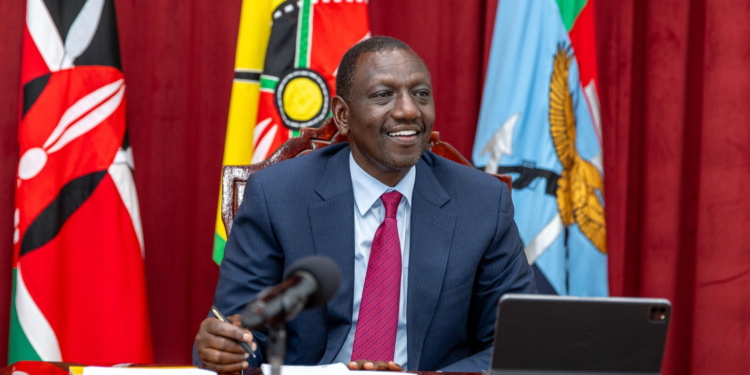President William Ruto has proposed a series of high-profile appointments to Kenya’s cabinet, including opposition figures, in a move aimed at forming a broad-based government and addressing urgent national concerns.
The nominations, announced in a speech on Wednesday, include John Mbadi for the crucial National Treasury and Economic Planning portfolio, Hassan Ali Joho for Mining, Blue Economy and Maritime Affairs, and Wycliffe Oparanya for Cooperatives and Micro, Small and Medium Enterprise Development. All three are prominent members of the opposition.
Several current cabinet members are set to return in new roles. Alfred Mutua has been proposed for the Labour and Social Protection ministry, while Kipchumba Murkomen is slated to head Youth Affairs, Creative Economy and Sports. Justin Muturi, the former Attorney General, has been nominated for Public Service and Human Capital Development.
New Cabinet Appointments
| Name | New Position |
|---|---|
| Hassan Ali Joho | CS for Mining, Blue Economy, and Maritime Affairs |
| John Mbadi | CS for National Treasury and Economic Planning |
| Wycliffe Oparanya | CS for Cooperatives and Micro, Small, and Medium Enterprise Development |
| Alfred Mutua | CS for Labour and Social Protection |
| Kipchumba Murkomen | CS for Youth Affairs, Creative Economy, and Sports |
| Justin Muturi | CS for Public Service and Human Capital Development |
| Rebecca Miano | CS for Tourism and Wildlife |
| Salim Mvurya | CS for Investment, Trade, and Industry |
| James Opiyo Wandai | CS for Energy and Petroleum |
| Onesmus Kipchumba Murkomen | CS for Youth Affairs, Creative Economy, and Sports |
| Stella Soi Langat | CS for Gender, Culture, Arts, and Heritage |
“I commend the leadership of diverse organizations both in public and private sectors, including political parties, for their encouraging response to my outreach to consult on forming a broad-based government,” President Ruto said. “Their willingness to set aside partisan positions and interests in order to join a visionary partnership for the radical transformation of Kenya is a historic gesture of their patriotism.”
The proposed cabinet reshuffle comes in the wake of recent protests over the cost of living and allegations of electoral malpractice. President Ruto acknowledged the unrest, expressing regret over lives lost and injuries sustained during the demonstrations.
“It is with deep regret that I have to say that many Kenyans lost their lives, and others were seriously injured as a result of disturbances occasioned by lawless activity during these protests,” he stated. “This is not how and where our democracy should proceed.”
In response to public concerns, President Ruto outlined a series of measures aimed at combating corruption and improving governance. These include proposed amendments to various acts to expedite corruption investigations and prosecutions, enhance witness protection, and overhaul the public procurement system.
“I have heard you and I have heard you clearly,” Ruto said, addressing the Kenyan people. “Consequently, the following measures shall be taken to accelerate progress to achieving the objectives stated by the people.”
Key proposals include amendments to expedite corruption cases, aiming for conclusion within six months, and an overhaul of the witness protection system to encourage whistleblowing. The president also called for reform of public procurement processes, including deployment of digital infrastructure for transparency, and expedited passage of a conflict of interest bill with stringent accountability measures.
Ruto emphasized the need for setting clear timelines for the conclusion of ongoing investigations by justice institutions. He also proposed a review of tax expenditure, particularly VAT refunds, to enhance accountability and redirect savings, as well as tightening legislation to reduce imports of goods already manufactured in Kenya.
The president addressed the recent protests, calling on the National Police Service to use its mandate “responsibly, professionally, and effectively in full compliance with the constitution.” He urged for the release of individuals “innocently caught up” in the demonstrations, while emphasizing the need to prosecute those who engaged in criminal activities.
“As citizens of this great nation, we all have a duty to balance our rights and responsibilities at all times,” Ruto stated. “So that the legitimate exercise of our rights and freedoms does not undermine our broader aspirations to remain a civilized, democratic, and peaceful country.”
The proposed cabinet appointments and policy measures reflect an attempt to bridge political divides and address pressing national issues. However, the effectiveness of these moves in quelling public discontent and advancing Kenya’s development agenda remains to be seen.
The nominations will now be forwarded to the National Assembly for vetting and approval. If confirmed, the new cabinet will be tasked with implementing what President Ruto termed a “transformation agenda” focused on improving public services, expanding economic opportunities, and advancing key sectors such as healthcare, education, and housing.
“Our explicit aim is to transform Kenya into a middle-income society,” Ruto declared. “And it is essential for us to urgently mobilize adequate resources to fund these necessary programs and projects.”
The president’s speech also touched on the need for a national conversation about Kenya’s economic priorities, particularly in relation to manufacturing and imports. Ruto questioned whether the country should continue to be “a supermarket for products from other countries” or focus on producing goods for which it already has manufacturing capacity.


















